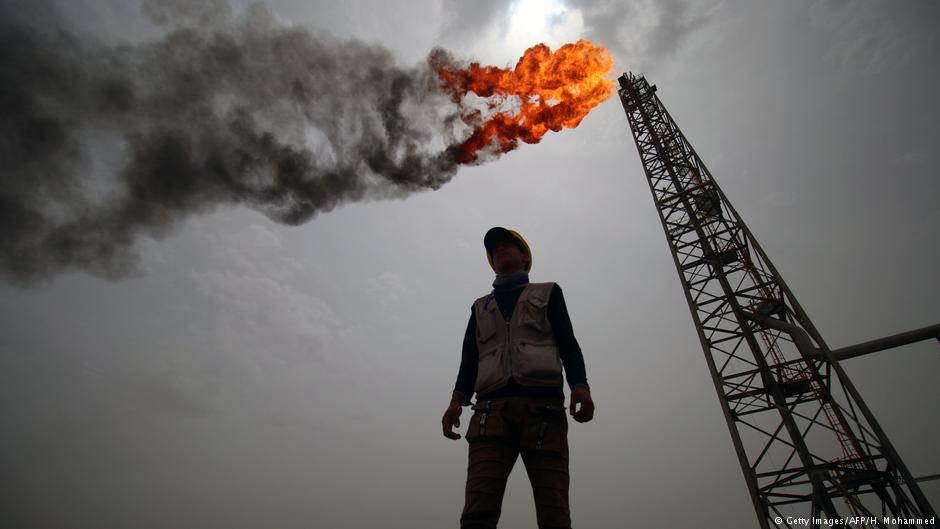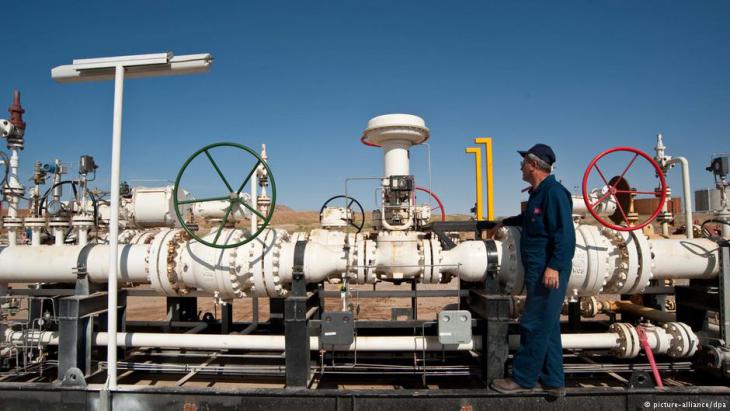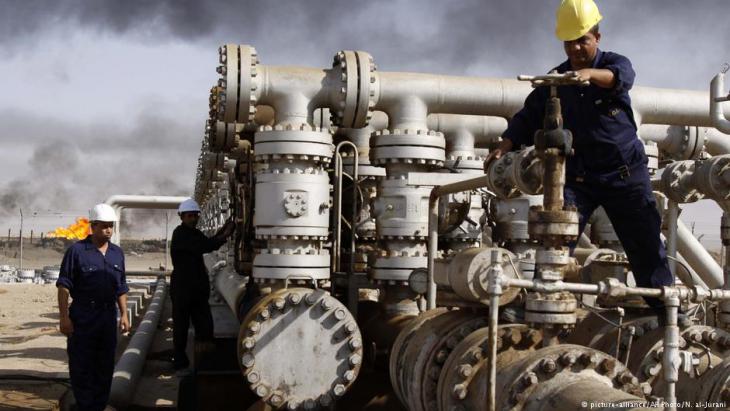The battle for Kurdish oil

The Kurdish region contains one-third of Iraqiʹs total oil reserves, 45 billion out of a total 150 billion barrels. The last three years dramatically re-shaped the oil map in Iraq, OPECʹs second largest producer, with an output of 4.5 million bpd. Relations between Kurdish Regional Government (KRG) and Iraqi federal government have been tense since the referendum for independence, further complicating complex ethnic and religious matters in Iraq.
Especially after Iraqi forces used the referendum as a pretext to launch a military offensive against troops from the Kurdish Peshmerga stationed in Iraqi Kurdistan, seizing control of the oil-rich city of Kirkuk and other disputed areas.
"Oil and gas are owned by all the people of Iraq"
Kurdish claims to oil rest upon their interpretation of Article 112.1 of Iraqi Constitution, which determines that present oil fields should be jointly managed by the federal government, oil-producing governorates and regional governments. For their part, Iraqi authorities base their arguments on Article 111, which states that ʹoil and gas are owned by all the people of Iraq in all the regions and governoratesʹ.
Dr. Katy Collin, Research Fellow at Brookings, acknowledges that at the time the constitution was passed, there would be a need to amend several areas of the law and that there were things that were left unsettled.
However, to date efforts to address these issues have not resulted in paths forward. Issues include the oil rights issues as well as questions on article 140 – with "normalisation" of the disputed territories and referenda on whether those areas would join the Kurdish autonomous region.
The same problem occurs when allocating the federal budget. On 3 March 2018, the Iraqi parliament voted to reduce the Kurdistan regionʹs annual share of the nationʹs budget to roughly 12%, a significant drop from its previous 17% allocation, adding another layer of tension. According to the Iraqi constitution, Kurdistanʹs region has a 17 percent share in Iraqʹs oil revenues.

Kurdish energy companies blacklisted
After gaining de facto independence from Iraq at the end of First Gulf War in 1991, the Kurdish Regional Government (KRG) launched the development and exploitation of its oil and gas resources, when the first oil wells at the Taq Taq field were built.
But it was not until the fall of Saddam Hussein that foreign investors became more engaged in the region. Kurds have managed to attract major oil companies, such as Chevron, ExxonMobil and Total SA with lucrative offers, advising them to ignore any threats of legal action from the Iraqi government.
After the KRG adopted its own hydrocarbon legislation including Oil and Gas law in 2007, Iraqʹs Federal Ministry of Oil blacklisted a handful of Kurdish energy companies, as well as those foreign enterprises that had signed production-sharing contracts with Erbil, such as SK Energy and OMV. Other companies were subsequently blacklisted, including oil giant Chevron. Since then, some of these companies have pulled out of the region, considering further operations too risky; other foreign partners have yet to receive their pay-outs, as promised in their contracts, from the cash-strapped Kurdistan Regional Government.
But that has not been the case with Russian energy giant Rosneft. Last February, Rosneft intensified its relations with Kurdistan, signing an oil supply agreement. Seven months later both parties formalized their commitment to build the Kurdistan-Turkey gas pipeline. As Reuters reported, the company lent the region hundreds of millions of dollars in loans guaranteed by future oil sales.
Russian engagement in Iraq part of a wider strategy
Increased Russian engagement in Iraq seems to be part of a wider Kremlin strategy to become one of the key players in the Middle East. Yet, since the deals were signed without consulting Bagdad first, many are wondering what the future of such energy investments – Russian plans to fund a natural gas pipeline in Iraqi Kurdistan, developing gas fields in five blocks, not to mention improving gas transport infrastructure in the region – is likely to be. Then there is the question of what happens to the KRG lenders, including Russia.

As foreign investors face sensitive internal disputes in Iraq which may escalate in the future, they will have to adopt a highly balanced approach. Major Western oil companies are still involved both in the KRG and the oilfields under control of the central government.
Guney Yildiz, visiting fellow at European Council on Foreign Relations, notes that in current political circumstances, it will be very difficult for them to risk alienating the central government by siding with the KRG. Russian Rosneft, however, has the luxury of approaching the deals without too much regard for the internal politics in Iraq.
Although Rosneftʹs deals with KRG have been realised amid the crisis in Kurdistanʹs relations with the central government and despite the fact that the deal has been concluded independently from Baghdad, it seems that Russian and Iraqi authorities managed to overcome initial disagreements.
New violent clashes unlikely
Will disputes over Kurdish oil revenues and issues related to the scope of KRG autonomy lead to new violent clashes between Iraqi Kurds and Iraqi forces in the future? This seems unlikely, owing to the dramatic shift in the balance of power since last autumn. Despite their central role in fighting IS, the strategic position of the Iraqi Kurds is now greatly diminished.
The post-referendum crisis has hit the KRG hard, both in political and economic terms. For Yildiz, the dispute over Kurdish oil revenues may cause instability firstly within the KRG region itself.
Government misrule and problems with the KRG has opened up space for IS to start regrouping again in places, including Kirkuk. The Kurdistan Regional Governmentʹs (KRG) revenues have been slashed by about half since the loss of Kirkuk, further depleting the regionʹs finances which have been reeling under Iraqi budget cuts since early 2014 and a recent budgetary reshuffle.
Stasa Salacanin
© Qantara.de 2018
